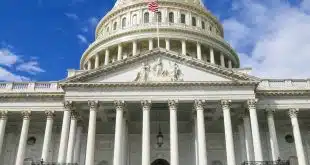Issuers signing up to have their cards included in the Apple Pay wallet may benefit from all the hype Apple Inc. is generating for the new mobile-payment service. But behind the scenes, the 500 or so financial institutions that have enlisted in the program so far are also signing up for a list of obligations and fees that could hand an unusual measure of power over to both Apple and the card networks.
For example, besides agreeing to share with Apple a portion of their interchange income on the cards they provision for Apple Pay, issuers also are committing to make available to the wallet at least 95% of their network-branded cards.
Issuers must also be ready to submit a twice-yearly accounting to Apple to verify the fees it owes the company, and if Apple isn’t satisfied with the issuer’s bookkeeping it may subject the issuer to an audit. The issuer must also submit “frequent reports” to Apple giving its cards’ Apple Pay transaction statistics.
These, along with other issuer obligations, appear in the text of a 19-page Apple Pay contract obtained by Digital Transactions News. The document assigns to Apple a powerful role not typically assumed by a non-bank or non-network player in such arrangements and may, in the view of some, place it at the level of a sort of hub or “network-of-networks.”
Indeed, the text of the contract, which bears the heading, “Apple Payment Platform Issuer Terms and Conditions,” appears to enlist Visa Inc. and MasterCard Inc. as Apple’s helpmates in various Apple Pay operations, including collecting the computer giant’s share of interchange income and gathering operational data.
“Apple is heavily leveraging the networks in order to consolidate technology, reporting, and even business functions,” says Rick Oglesby, a senior analyst at Centennial, Colo.-based Double Diamond Payments Research, in an e-mail commenting on the contract. “Apple could quickly become the network-of-networks if it can drive consumer demand.”
Apple and MasterCard did not respond to inquiries from Digital Transactions News about the document. Visa says its policy is not to comment on the contractual arrangements of its partners.
Rumors about how Apple would make money from its mobile-payment service swirled around the payments industry even before the company unveiled Apple Pay, along with its new iPhone 6 and iPhone 6 Plus smart phones, on Sept. 9. This scuttlebutt included reports that Apple would receive a share of interchange on each transaction performed by a bank-issued card included in Passbook, Apple’s 2-year-old wallet application that it has linked to Apple Pay. These reports have been confirmed by the contract terms.
For credit card transactions, participating issuers will hand over to Apple 0.15% of the transaction amount. For debit cards, the share for Apple is half a penny for each transaction. This comes on top of various fees issuers will also pay Visa and MasterCard to tokenize their cards for Apple Pay to mask the cards’ actual account numbers. For instance, MasterCard is charging 50 cents to provision each token, while Visa’s fee is 7 cents, sources say.
What may not be as widely known, however, is that issuers are not paying Apple directly. Instead, issuers will pay the card network, which will then pass the fees on to Apple, according to the contract terms. Issuers will receive an invoice each month from the network, and will have 15 business days to pay it. Issuers are also barred from recovering any Apple Pay costs from cardholders in the program and must absorb their own development costs stemming from their participation.
At the same time, fees could accumulate rapidly, given another contract requirement. Issuers must make available for Apple Pay at least 95% of the cards in their portfolio that are branded by a participating network, such as Visa or MasterCard. The agreement specifies certain types of cards issuers may exclude from this calculation, including ATM-only cards, gift cards, health-savings-account cards, and commercial cards.
To make sure issuers are ponying up what they owe, the agreement allows Apple to request, no more than twice each year, a written certification that the amounts are accurate. If the company disputes the certificate, it’s allowed once each year to hire an external auditor to go over the issuer’s Apple Pay records. If an underpayment exceeding 5% is found, the issuer will have to pay the auditor’s fees.
Beyond fees, the contract also requires issuers to produce, through the card network, an extensive set of statistics for Apple regarding their Apple Pay activity, including nearly three-dozen categories of quantifiable information. Categories include number and dollar volume of credit and debit activity, average ticket, breakdown of transactions between in-store and in-app usage, and top 100 merchants by charge volume.
The extent to which the agreement harnesses the networks for Apple Pay—and involves close monitoring by Apple—could bolster the position of these players relative to financial institutions in ways other mobile-wallet programs don’t. “The networks are fully embedded in the product, which obviously strengthens their position with regard to financial institutions,” says Oglesby. “[The contract] simultaneously makes Apple a major customer of the networks, which is a strong position for Apple.”
Oglesby adds the contract’s pricing also underscores a role for Apple that is unusual in the burgeoning mobile-payments business. “It\’s…interesting that the 15 [basis points] that Apple will collect is pretty similar to the revenue that the payment networks are able to extract from issuers and acquirers, so price-wise Apple is already perceived to be providing similar value to the payment networks,” he notes.





